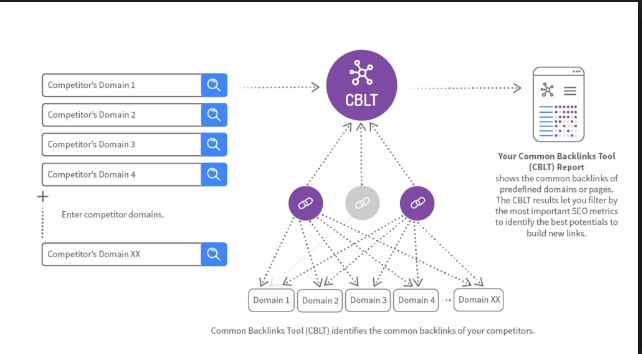It’s nearly 2019 and so much has changed with SEO and link building over the past seven years. It all started when Google released their Penguin Update on April 24, 2012. Overnight the search results changed dramatically. Companies that once ranked disappeared and lost huge amounts of traffic in an instant. This was the start of Google’s efforts to punish spam in their search results.
Since April 2012 Google has had several updates that have changed how effective links are. Nowadays, Google often ignores low-quality spammy links. If you happen to get too many of these type of links it can cause serious ranking issues.

How to Determine Quality Websites
The first step is to actually determine if a website is good or poor quality. The way I like to do this is using SEO tools like SEMRush, Moz, and Ahrefs. My McKremie SEO Company in USA uses these practices when determining the quality of a website.
Best SEO tools
SemRush
SEMRush is my first go-to tool. I utilize their overall Google traffic tool that is fairly accurate. If you enter the website domain name into the tool it gives you a traffic number. This number represents the estimated amount of traffic the website receives via Google. This is the single strongest signal you can use to evaluate a website. The higher the traffic from Google the better the quality the website is. Why? Because Google is rewarding what they feel are quality websites with higher rankings and more traffic.
Moz
Moz is good to check out their metric called Domain Authority. Essentially, domain authority is a score (0-100) based on the number of websites that link to that domain. Not just the quantity but the quality of websites. I don’t get hung up on domain authority scores too much however, it is nice to see a decent number of websites link to it. What’s a good domain authority number? It really depends, most of the time my SEO Company stays above DA30 but in some cases, if the website is hyper-relevant the relevancy will outweigh the domain authority score.
Ahrefs
Ahrefs is good and they have their own metrics as well. You can use their metrics however, we just look at the total number of root linking domains. Here the higher the number the better most of the time. But don’t neglect quality either. If a website has 25 links but 4-5 are from high-quality well-known websites, then that might work.
Relevance
Have you heard the phrase “content is king?” Well, when it comes to link building relevance is king. It doesn’t matter how awesome a website is if it is not relevant to your website. Think of it this way, would a dog training website link to a lawyer website? Not naturally. You can usually determine what a website is about or related too when you read the homepage and a few of their blog posts. You can also take this one step further and do a “site:domain.com + keyword” search in Google to see how many pages the website has that are related to your keywords.
Authorship Matters
Getting a link from well-known authors within your industry is huge nowadays. What is a better trust signal than an industry leader that mentions your website in their writing? Not much. Google already does a really good job of known information about authors. There are several patents filed by Google on how they use authorship. Authorship is also mentioned several times in the Google Quality Raters Guidelines.
Type of Links
There are different types of links you can build to help with SEO but not all are recommended. Some of the best links you can get are links you earn within the content of an article. Often-times these are links citing a source or backing up the author’s claims. When our link building services company does link building for our clients these are the links we build.
Blogroll links were popular about a decade ago. They worked well back then because the link flowed more Pagerank because they were linked to from all the important pages of a blog. Nowadays it is OK to have one or two of these links but only if they make sense. I wouldn’t waste any time and money on these. I would even go as far as calling this an outdated SEO technique.
Blog comments as a link building strategy is a spammy as you can get. Don’t do it. Not only is it a huge waste of time, but you might also actually be putting your website in harm. Again, too many spammy links can hurt the ranking potential of a website.
Final Thoughts
If you want links that count going forward focus on relevance, Google traffic, and the root linking domains. This alone will help ensure your links are working for you as opposed to against you. How many links do you need to build this year?


